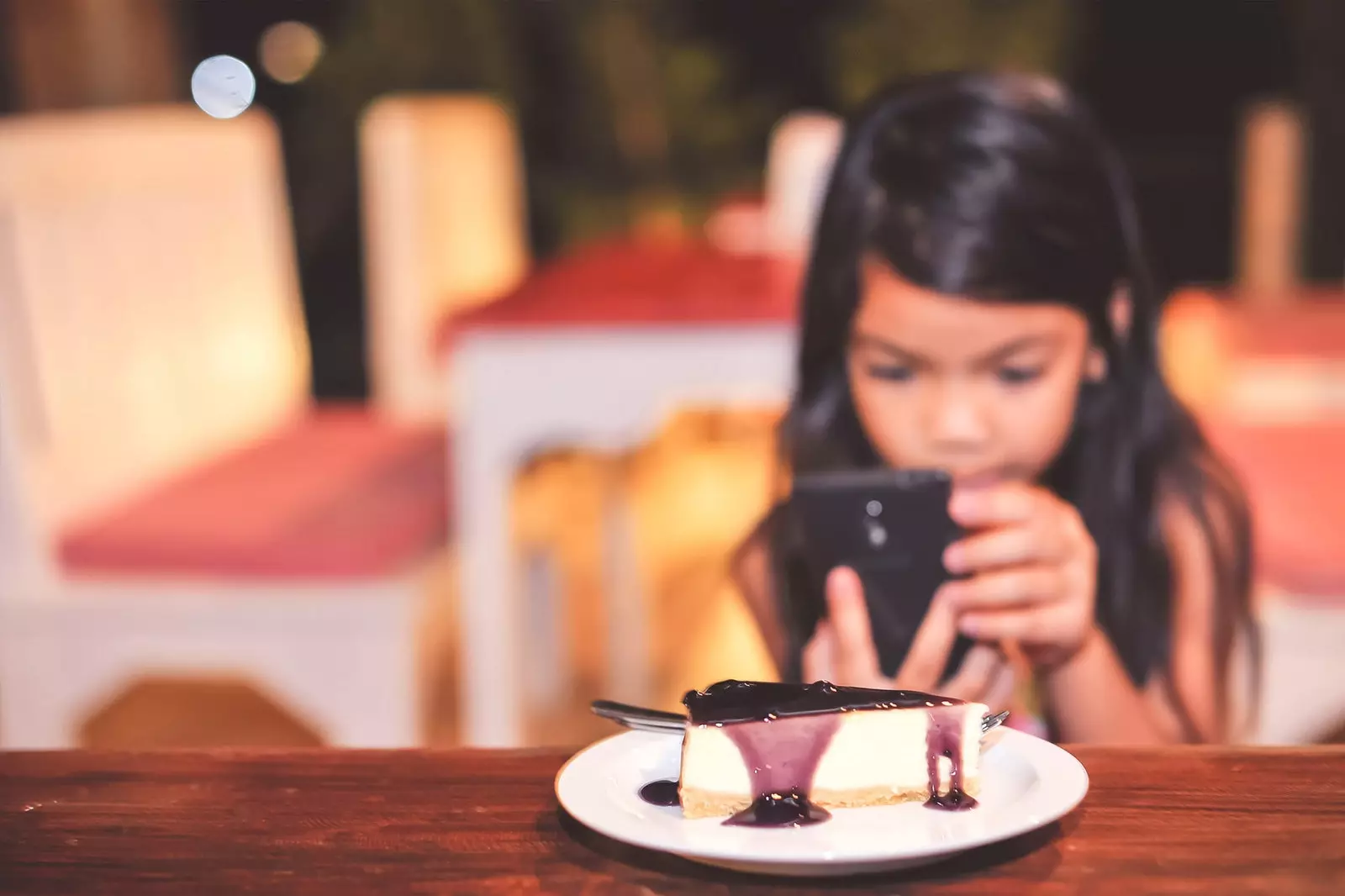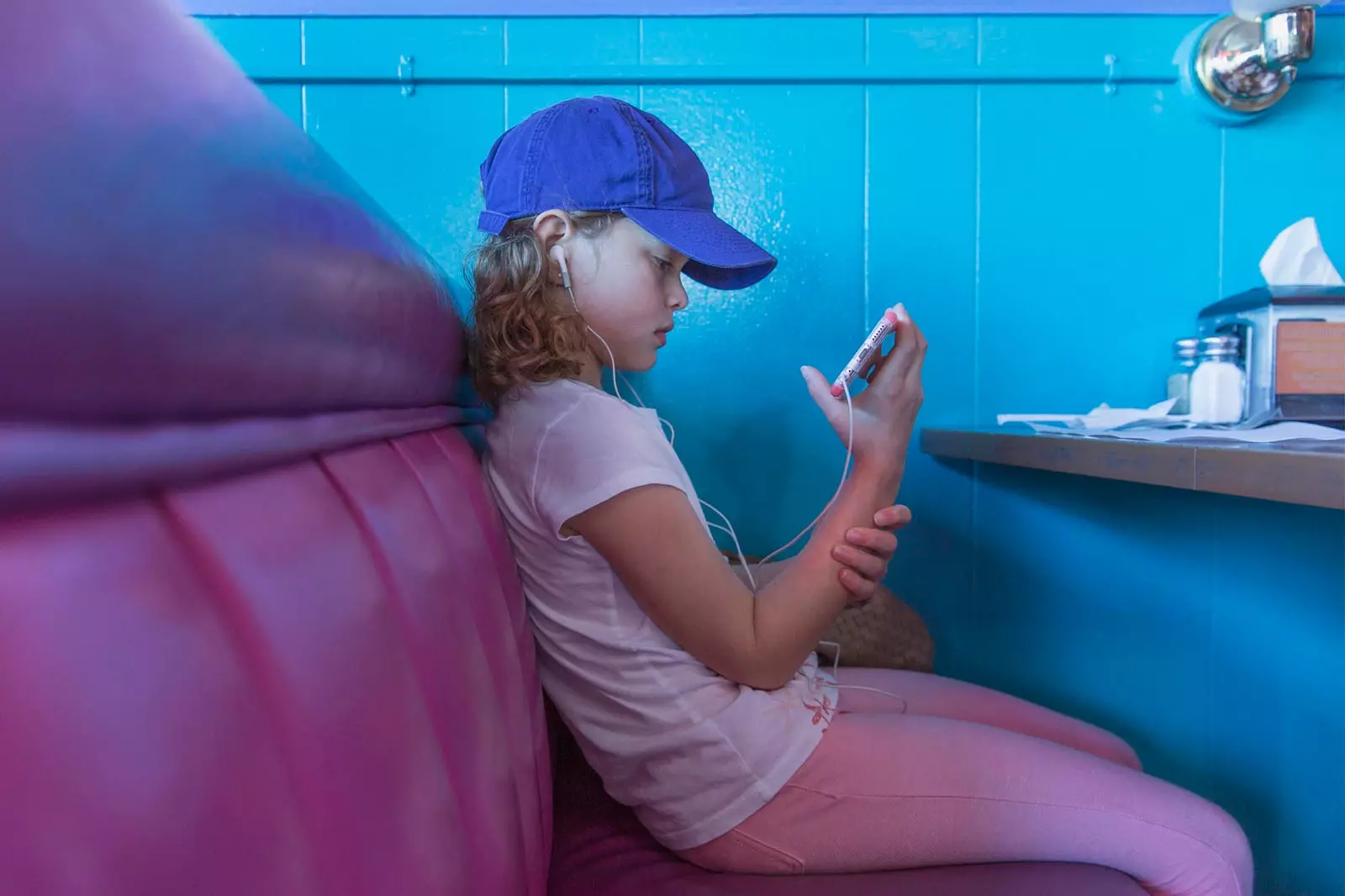
The use of mobile phones in children has been linked to the risk of obesity
The scenario is already common: you enter a restaurant and, wherever there is a child -of whatever age-, there is a mobile or a tablet glued to his face. It doesn't seem to matter that the American Academy of Pediatrics advises completely avoiding screen exposure before the age of two and turning off the TV during childhood meals.
not even that they are extensively studied the negative effects of this exposure to the virtual in the cognitive development of children in areas ranging from academic results to aggressiveness, through language, attention and sleep (as collected in Effects on children's cognitive development of chronic exposure to screens ).

It's good?
The use of screens for more than two hours a day has even been linked to being up to five times more likely to start smoking -with respect to those children who use them less than that time-, as investigated in Television viewing and initiation of smoking among youth.
And that's not to mention that children who eat in front of a screen have a much higher risk of suffer from obesity than those who do not, as stated in this 2011 study and this one published in 2017.
To ignore all the alarms, it is clear that the advantages that parents find when giving their children a mobile while they eat must be very powerful. They are defended, for example, by AJ Ratani and Natasha Sandhir, parents of three-year-old Aarav, and authors of the travel blog The 2 Idiots Travel Blog .
“ We strongly recommend the use of devices at mealtimes in a restaurant - although, personally, we prefer to put our son in apps that are educational and that she can learn from. Doing so, we enjoy our food and, while he is distracted, we take the opportunity to try new foods -he has tried all kinds of cuisines on our trip around the world in this way-", they explain to Traveler.es.
The family has already 31 countries traveled, in which they have visited almost 100 destinations. In each of them, Aarav has eaten in front of a screen. "We started using them around six months of age, we used them in restaurants on our trips around the world and we still use them when we go out to eat," they say.
Thus, they consider as benefits of this practice that adults can "enjoy their food and spend time together", and that the child tries new foods and learns from educational apps. The only disadvantage they find to the method is that there is less interaction with the child in restaurants "although we do not believe that this is a problem, since we interact with him a lot outside of them ”, they affirm.
The psychologist Ramon Nogueras , however, is not of the same opinion. “ It is absolutely not advisable to use electronic devices to entertain children while they eat in restaurants, for various reasons. The first is that the interaction with the parents is something much more important and a greater reward for them than a screen."

tourists of the future
"The second is that we are reinforcing undesirable learning, because children have to learn little by little to behave with other adults without the need for screens. The solution for them to learn is not to give them an addictive distraction,” he argues.
In fact, he doesn't even think it's a good idea when what the child uses are educational applications, because, according to him, “ there is no evidence that these apps, like cognitive training apps, make any difference ”. And he emphasizes: "I have two little girls and I understand that sometimes it is heavy, but that time with the children is quality time, it is the definition of quality time", he maintains.
"It is more effective to gradually teach children to eat quietly and to participate in the situation. The children have to have the opportunity to feel part of the event, not a pain in the ass that must be kept entertained and not bothered”, explains Nogueras.
AJ Ratani and Natasha Sandhir, however, are Proud of your child's behavior at the table: “Nobody has ever looked at us badly for entertaining our son with technology. In fact, almost the opposite: most of the families we talk to tell us how good our child is at dinner and we owe it 100% to the devices”, they reflect.
“ Taking care of children is already complicated enough as it is and, once you have children, it is difficult to have time as a couple. So when we go out, devices help us create the space and time to interact with each other. I think there will be an age where we want him to be part of that conversation, but it's not three years old, "explains the couple with a smile.

"It is our tolerance that has changed"
However, in Nogueras' opinion, when they want their child to join the conversation, breaking away from the screens will be quite difficult. “If they want to change that habit, they must understand that there will be some resistance on the part of the child. Every process of extinction initially entails an increase in the behavior that we want to eliminate. Second, it is easier to make the switch if they are given an alternative (bring a toy, colored pencils, and something to paint with). Third, we must readjust our expectations: when we are with children, it is normal that from time to time they demand our attention or interrupt us with their things. This is an opportunity to go little by little teaching not to interrupt, to ask for a turn to speak, to eat sitting down and calm. Persistence is key and it gives better results in the medium and long term”, she explains.
“Seriously, we have had children for thousands of years at meals, parties and events and nothing has happened. The problem is not that children behave like children. His behavior has not changed. It is our tolerance that has changed”, concludes the expert.
